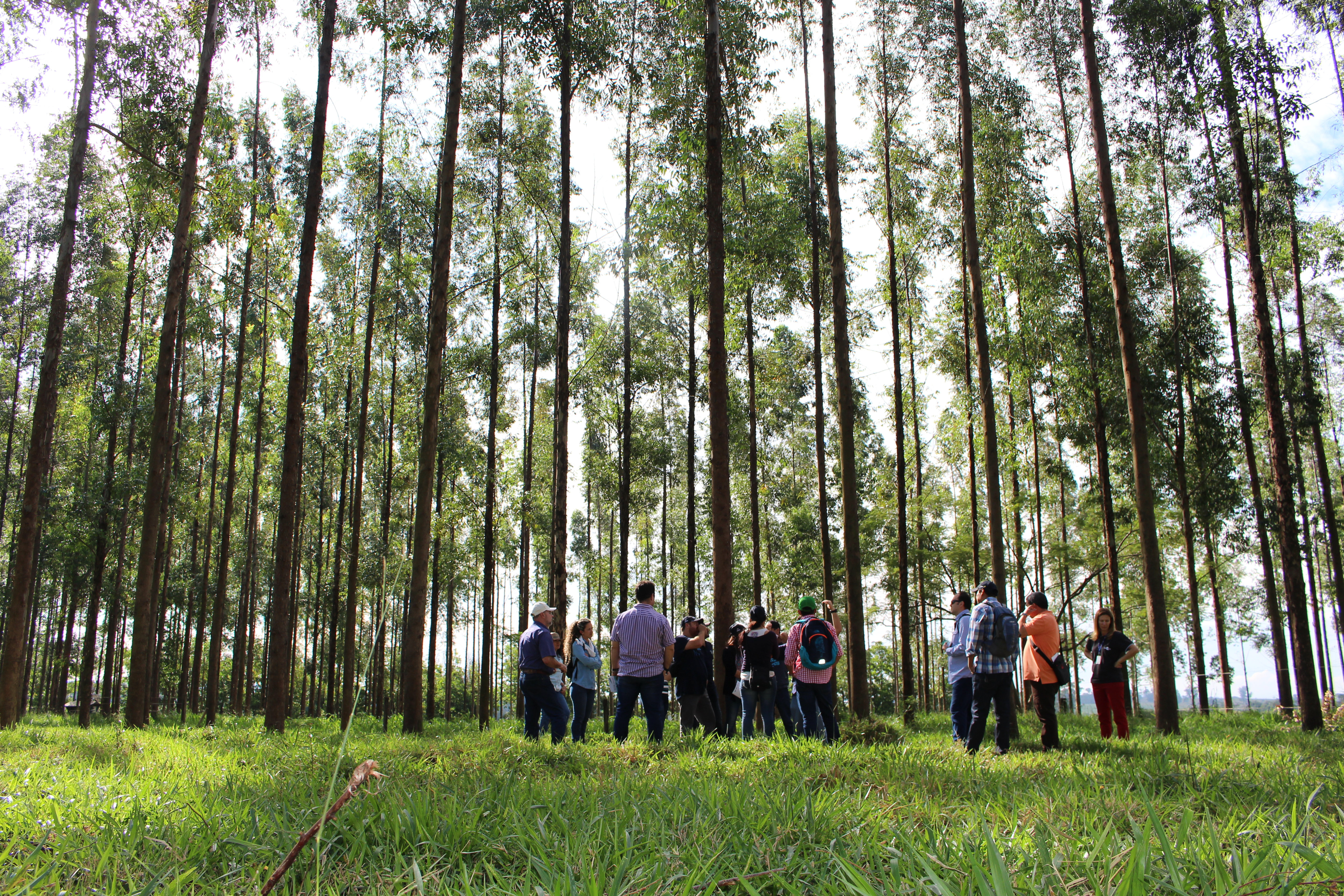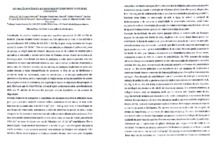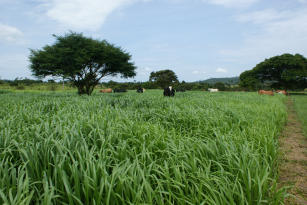Tropical pasture management draws Colombians' attention to São Carlos
Tropical pasture management draws Colombians' attention to São Carlos
Tropical pasture management for the rehabilitation of soils and intensive milk production was the highlight of a Colombian delegation's visit to Embrapa Southeast Livestock (São Carlos, SP). They participated in a field day on Integrated Crop-Livestock-Forestry systems (ICLFS) and dairy farming last Friday (May 5).
The group was welcomed by the deputy head of Technology Transfer, André Novo, and the researcher and international negotiator Alberto Bernardi. They conducted the visit to the integrated systems at the ICLFS, BRS Mandarim pigeon pea, and dairy demonstration units.
Comprising technicians, cattle farmers, growers, veterinarians, engineers, administrators, animal scientists, and foreign trade negotiators, the Colombian delegation came to Brazil to learn about novelties in agriculture. Their schedule also included two important events, Expozebu (Uberaba, MG) and Agrishow (Ribeirão Preto, SP), as well as a visit to Embrapa Rice and Beans (Santo Antonio do Goiás, GO).
For the seed importer Luis Jaramillo – who organized the visit –, “the aim was to check different alternatives that can be offered to farmers for the rehabilitation of degraded soils, which is very common in Colombia. Moreover, we sought alternatives such as legumes like the BRS Mandarim pigeon pea and for the forestry part”.
Angela Castillo, a technician who works in a limestone trading company, was impressed by some characteristics of the ICLFS area. “Here we can see that the soil has not degraded that much, that it is a soil that is alive, due its dark color and the maize quality. It is a biologically more active soil”, she commented.
The stregth of partnerships
The ICLFS Fostering Network is a public-private partnership between the companies Dow AgroScience, John Deere, Parker, Syngenta, Cocamar and Embrapa, whose goal is to accelerate the adoption of integrated crop-livestock-forestry systems among farmers for the sustainable intensification of Brazilian Agriculture.
The Network, which is co-financed by private companies and by Embrapa, supports 97 Technological Reference Units distributed in all Brazilian biomes, and involves the participation of 19 Embrapa research centers.
Meanwhile, UNIPASTO is an association composed by forage seed companies and growers, with the aim of supporting the research and development of new tropical forage cultivars.
For that purpose, it offers financial and logistic support to forage breeding and assessment programs in some of Embrapa's units: Embrapa Acre (Rio Branco, AC), Embrapa Cerrados (Planaltina, DF), Embrapa Beef Cattle (Campo Grande, MS), Embrapa Dairy Cattle (Juiz De Fora, MG), and Embrapa Southeast Livestock.
For André Novo, the Colombians' visit “demonstrates the success of the work of such associations and of Embrapa itself, and also stresses the importance of partnerships. The reach and the interest in new technologies developed in Brazil reveal the advances and the efforts towards a more precise and sustainable agriculture in Latin American countries and in the world”.
Translation: Mariana Medeiros
Edilson Fragalle (Journalist - MTB 21.837/SP), in collaboration with Maria Verônica Silva
Embrapa Southeast Livestock
pecuaria-sudeste.imprensa@embrapa.br
Phone number: +55 16 3411 5625
Further information on the topic
Citizen Attention Service (SAC)
www.embrapa.br/contact-us/sac/



